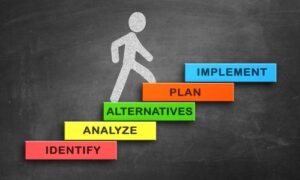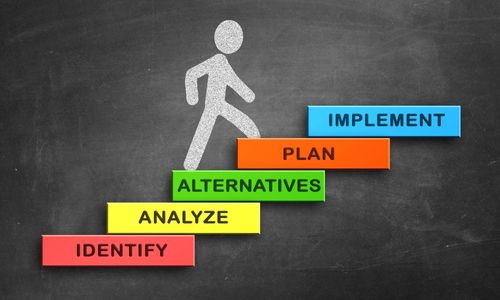
Have you ever heard the phrase, “Not at grade level,” or “they are young for their age?” These terms help us focus on how our society is designed to progress chronologically. We set expectations of what should be accomplished by certain ages. There are also exceptions like “she started talking late,” but there is a sense of anxiety when certain benchmarks aren’t reached. Appropriately, when there are certain benchmarks that aren’t reached, supports can be provided to help level the playing field. Expectations and demands progress at a rate that suits the majority of individuals, not all individuals. This is so important when discussing “adulting.”
For example, the leap from elementary to middle school is filled with increased demands on executive functions to be successful. This is true for most transitions, and is just as apparent with the leap from high school to college, or college to the workforce. Since these demands progress, there can be feelings of “I’m stupid,” or “My kid just won’t grow up,” but it is important to understand how brain development works, how these executive functions develop, and why you may seem “behind” others.
There are two factors at play here: the ability to learn certain skills, and the actual process of learning these skills, which we will review below.
Ability to Learn
The brain needs to be developed enough for certain things to be learned. Think of a five-year-old, would you expect them to be able to use a calendar on their phone? Would we expect a five-year-old to be able to handle six classes, all with different teachers who have different styles? Not necessarily. Certain skills need cognitive foundations to be taught. Everyone’s brain develops at a different rate. This is familiar for new parents, who look for developmental milestones in their infants and toddlers. If they miss a milestone, it isn’t cause for concern as much as something to watch out for and support. Think of the child who doesn’t start talking until after their peers, but by age 3 is totally developmentally appropriate for their age.
Executive functioning skills are similar. Their brain foundations are mostly in the prefrontal cortex. This is one of the most complex areas of the brain, and one of the latest to evolve. Executive functions begin their long development period right after birth, take large leaps during early childhood, and can take 25 years to fully develop. This is a long arc for the development of the foundations for the skills to form. Where a child’s language skills are apparent in a shorter time frame (and thus able to be identified easier) executive functions can cause alarm before they need to be. It is hard to place expectations of “adulting” if the brain is not fully developed yet.
For example, we’ve worked with plenty of individuals who seemed to have executive function concerns in 6th grade, but by the time they were in high school, a lot of those concerns faded away. To further complicate matters, those with learning differences can develop executive functions at a slower rate than their neurotypical peers. This is why I tell people, think: Would you place the same executive function demands on someone 4 years younger?
Learning of Strategies and Skills
The flip end of this coin is the actual learning of the strategies and skills that utilize these executive function brain foundations. It is one thing to have the capacity to plan and prioritize, it is a totally different thing to develop the strategies that work best for you in using these parts of the brain. For example, it is one thing to have the ability to plan ahead, but it is a totally different thing to know: how to use a calendar, develop the behavior to check your calendar daily, and adapt that calendar when there are conflicts. So learning the skills and strategies is another factor to consider. With individuals who learn differently, it is very important to understand that there can both be a delay in the formation of the cognitive foundations, but also the learning process may take longer.
So what is the takeaway: everyone is an individual with unique brain development and circumstances. Looking at developmental milestones is important, but we need to make sure that we focus on the individual in developing expectations and supports. Adulting is such a broad concept, that it is important to break this down further. Our next blog will focus on how to bridge the gap between where our executive function development is, and where societies expectations need them to be.





